Groups
-
adminposted in News & Trends • read more

By Edith Ike-EbohThe Nigeria Extractive Industries Transparency Initiative (NEITI) says it is strategising to ensure that N69.5 billion and 5.31 billion dollars statutory revenue yet to be paid to government coffers are fully recovered.
Dr Orji Ogbonnaya Orji, the new Executive Secretary, disclosed this at a maiden news conference in Abuja, on Tuesday.
He said that the amount was revealed on its 2018 audit report and that the agency would focus on remedial issues disclosed in most of its audit reports.
The Current NEITI Management under my leadership is already evolving policies and strategies that would ensure that the recommendations in our reports are followed through.
And Statutory recoverable revenues due to government which is put at N69.51 billion and 5.31billion dollars as revealed by the 2018 audit reports are recovered into government coffers.
These recoverable revenues consist of payments on oil royalty, gas royalty, gas flare penalties, petroleum profit tax, company income tax, education tax, withholding tax, value added tax and NNDC levy, he said.
He said that NEITI was no longer comfortable by just releasing reports adding that its emphasis would be on recoverable revenues due to government.
Orji noted that NEITI would also ensure that companies were treated fairly and given the opportunity to grow.
NEITI will unveil a framework that will involve stakeholders in this process. Joint committee between NEITI and respective covered entities will be established to look at the issues as they affect individual agencies.
The joint Committees will be similar to the one established between NEITI and the Nigerian National Petroleum Corporation (NNPC) and is without prejudice to the revitalisation of the inter ministerial Task Team on remediation as a multi-sectoral approach, he added
According to him, the approach will create opportunity for NEITI to appreciate their locations, peculiar nature of their operations and workflow.
Orji noted that NEITI would also focus on the Mining sector giving the global conversation on energy transition.
Since inception of NEITI Audit of solid minerals sector, there has been a steady increase in revenue accruable to the federation account from the sector.
From a paltry N8.19 billion recorded in 2007 audit to over N67 billion earned from the sector in 2018 shows 900 per cent increase.
(It is) a mere 0.18 per cent contribution of the sector to the GDP; shows that a lot more needs to happen in the Nigerias mining sector.
We will therefore conduct fresh scoping studies on Mining paying particular attention to investment opportunities in the sector, he said
He assured that NEITI would take the lead in assisting government to have a fallback position as renewable energy and its attendant consequences got underway.
He further assured that NEITI would continue to be fully committed and responsible to the principles and standards of the global Extractive Industries Transparency Initiatives (EITI) in the implementation of the 2019 EITI standards and the emerging issues.
Let me assure the EITI community of a stronger NEITI built on our core values of Legitimacy, Integrity, Partnership, Courage, Openness and Team Work.
We will also remain committed to the full implementation of the emerging issues in the areas of contract transparency, Beneficial ownership, Mainstreaming, Commodity trading, environment and Gender, he said.
He also, solicited the support of the Media and Civil Society Group as their role remained central to the EITI process. (NAN)
Source: NAN News
-
adminposted in News & Trends • read more
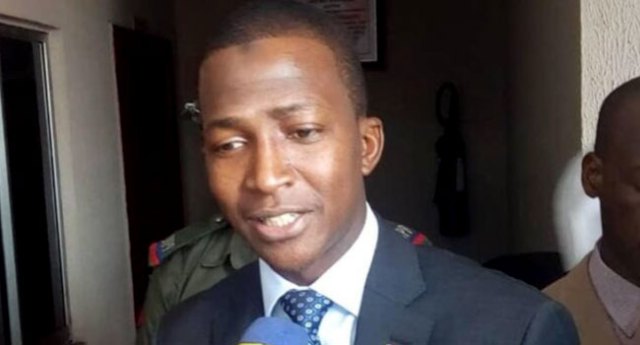
By Ismaila ChafeThe Chairman of the Economic and Financial Crimes Commission (EFCC), Mr Abdulrasheed Bawa, says from June 1, 2021, all bankers in the country must declare their assets in line with the Bank Employees Declaration of Asset Act.
Bawa stated this when he fielded questions from State House correspondents after a closed door meeting with President Muhammadu Buhari at the State House, Abuja, on Tuesday.
According to him, assets declaration by bankers and financial institutions is part of the measures meant to ensure that the country is free of financial crimes.
He said: We are doing our best to ensure that this country is free of financial crimes.
We understood that the tail end of every financial crime is for the criminal to have access to the funds that he or she has illegitimately gotten, and were worried about the roles of financial institutions.
We hope that all financial institutions, particularly the bankers, will declare their assets as provided for by the law, in accordance with the Bank Employees Declaration of Asset Act.
And that the EFCC, come June 1, 2021, will be demanding for this asset declaration forms, filled by the bankers so that the line that we have drawn from the first of June is really complied with by bankers in particular.
The EFCC boss, who met with the president for the second time since his appointment last two weeks, revealed that he updated Buhari on the ongoing reforms being carried out by the new management of the commission.
We reviewed a lot of things that we want to do towards eradication of financial crimes in Nigeria.
As you are aware, I was here about two weeks ago before my taking over.
He (Buhari) is happy with what he has heard so far with the reforms we are working on with the new EFCC going forward, in terms of the way we investigate, prosecute and the way we are generally executing our mandate, he added.
Bawa described the menace of cybercrime as a huge challenge to the country, saying about 300 cyber criminals were apprehended by the commission in the last four weeks.
He, therefore, appealed to parents, guardians as well as religious and traditional leaders to redouble efforts in educating the younger people on the danger of cybercrime to the nations economy and the society.
In the last one month, we have arrested about 300 cyber criminals across the country and it was reported in the media.
It is something that I am particularly worried about.
As a young man, I am appealing to all young Nigerians to desist from these cybercrime activities.
It is bringing bad image to our country, it is giving bad name to our country.
It is also chasing away a lot of foreign investment that we need.
I call on all parents, guardians, and, of course, elders in the community, in the society to be able to talk to these young people to desist from these crimes, he said. (NAN)
Source: NAN News
-
adminposted in News & Trends • read more
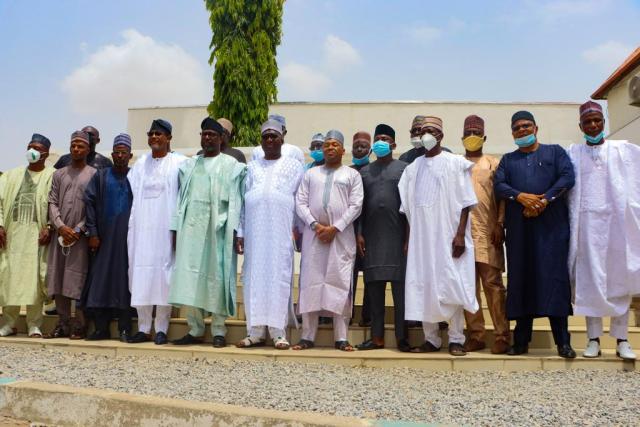
Gov. Abubakar Bello of Niger has advocated the establishment of state police in the country to provide security at the lowest level of the society.Bello stated this in a statement by his Chief Press Secretary, Mrs Mary Noel-Berje, on Tuesday in Minna.
He made this known when he received delegation of the Association of Local Government of Nigeria (ALGON), led by David Alabi at the Government House, Minna.
Bello said the establishment of the state police would complement the efforts of the Federal Police who are grappling with inadequate manpower and other logistical challenges.
Now I strongly believe state policing is necessary because we have to take the security down to the lowest level as the Federal Police cannot do it alone.
So, it is time to allow for the state police that will grow from the bottom-up so that there will be presence of security personnel even at the unit.
Hopefully, when that is done we will get some peace and more so, that the police will be employed from the communities they know everyone, he said.
The governor said he did not expect the establishment of the state police to be complicated, adding that even the local governments should have their police too.
We must break the responsibility from Federal-to-States, and from states-to-local governments.
Even at the local governments level, they should have their police so that, at all levels, there are some measures of control and, in any case, it shouldnt be complicated.
He challenged the leadership of National ALGON to ensure that all chairmen provide robust administration because of their proximity to the people.
According to him, his administration had given financial autonomy to the local governments in the state and was pushing for them to have their allocations directly.
He decried a situation where only about nine local councils could comfortably pay salaries of staff, attributing the failure to over blotted salary pay roll with higher number of ghost workers.
Alabi said they were worried about the unprecedented attack and banditry activities across the country.
You will agree with me that the panacea for a safe community is this call for the state police and for community policing.
It is necessary that we should have state police and also the need for the review of allocation sharing formula in favour of states and LGAs when the state police its finally approved because there will be lots of money required for its take-off, he stated.
He commended Bello for the various road constructions across the 25 LGAs to bring about the desired growth and development of the state.
Alabi called on local government chairmen to be vigilant in their various areas and ensure that there are no security breaches and challenges.
Source: NAN News
-
adminposted in News & Trends • read more
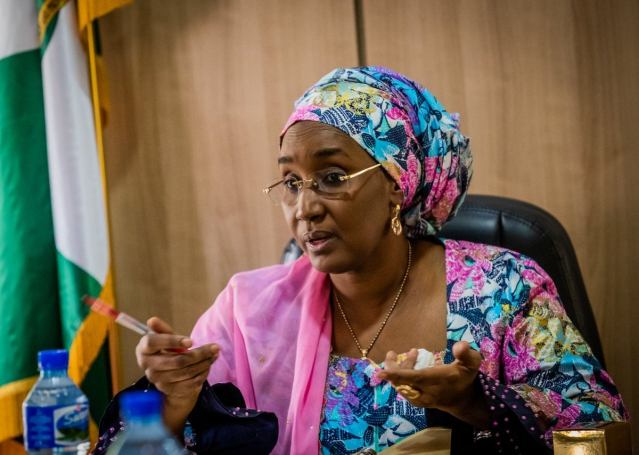
By Victor AdeotiThe Federal Government on Tuesday inaugurated its N20, 000 cash grant for each of the 3, 270 rural women drawn from 30 local government areas of Osun.
Hajiya Sadiya Farouq, Minister of Humanitarian Affairs, Disaster Management and Social Development, said at the inauguration in Osogbo, that the programme was introduced in 2020.
Farouq, represented by Dr Matthew Dada, Director of Finance and Account in the Ministry,said it was to sustain the social inclusion of President MuhammaduBuhari-led administration.
She said the cash grant programme was also designed to provide a one-off grant to some of the poorest and most vulnerable women in rural and peri-urban areas of the country.
The minister said the grant would be disbursed to no fewer than 125,000 poor women across the 36 states of thefederation and FCT.
She said: Our target in Osun is to disburse the grant to over 3,500 beneficiaries across the 30 local government areas in the state.
In line with President Muhammadu Buharis social inclusion, up to five per cent of the total number of the beneficiaries is allocated to persons with disability.
We encourage the state government to take a cue from this and other provisions in the Discrimination against Persons with Disability (Prohibition) Act, 2019.
The grant is expected to increase income and productive assets of the target beneficiaries.
It is our hope that beneficiaries of this programme will make good use of the grant to generally contribute toward improving their living standard.
On other social intervention programmes by the Federal Government, Farouq said that more than 12 million households had benefitted from the National Social Investment Programme (NSIP).
The minister said the NSIP was one of the largest social protection programmes in Africa.
According to her, over one billion dollars was earmarked annually to cause positive change in the lives of the poorest and most vulnerable in the country.
Farouq said that since inception of the programme in 2016, it had impacted positively on the lives of the poor and vulnerable in Nigeria.
In his remarks, Gov. Gboyega Oyetola of Osun, commended President Buharis commitment to combat poverty through various social intervention programmes in the country.
Oyetola, represented by Prince Wole Oyebamiji, Secretary to the State Government, saidthat every effort to take care of the vulnerable was a vote for peace, security and prosperity of the nation.
We must acknowledge that no society is truly secured, until there is a proper plan put in place to take care of the most vulnerable.
It is on this note, therefore, that we must commend this initiative, especially coming in the wake of the novel Coronavirus pandemic that has disrupted economic activities globally.
I congratulate all the beneficiaries and urge them to make good use of this grant to improve their wellbeing, Oyetola said. (NAN)
Source: NAN News
-
adminposted in News & Trends • read more
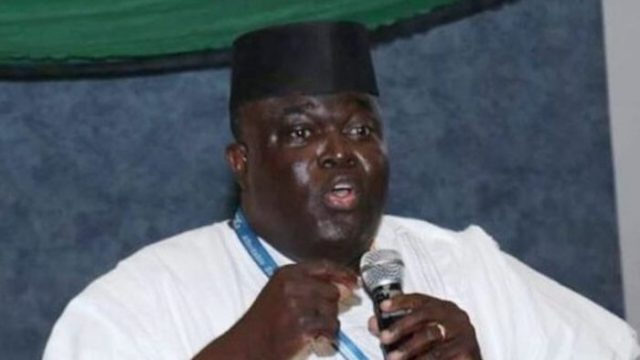
By Sade AkpanMr Chidi Izuwah, the Director-General, Infrastructure Concession Regulatory Commission (ICRC) has died.
A reliable source from the organisation confirmed to the News Agency of Nigeria (NAN) that Izuwah passed away on Tuesday morning after a protracted illness.
It is a sad day for us at the ICRC. Chidi Izuwah, Director General of the Commission passed on today, he said.
He also said that details of Izuwahs death would be released later.
NAN reports that Izuwah, an engineer, joined the ICRC in 2009 as the pioneer Executive Director, Public Private Partnership Resource Department (ED P3RD) where he set up the Department from scratch.
In this role, he was responsible for catalyzing Public and Private expertise and resources towards putting in place a world class PPP pre-contract regulatory framework and guidelines for driving the preparation and development phase of Federal PPP Projects.
He became the Executive Director, Support Services Department (EDSS) in June 2016.
He was confirmed by the Senate as DG in 2019 after serving in acting capacity.
Izuwah holds a first degree in Civil Engineering from the University of Nigeria, Nsukka and a Masters degree in Hydraulic Engineering from the University of New Castle Upon Tyne in the United Kingdom.
He was a Harvard, Wharton, Columbia University and Indian Institute of Management Ahmedabad Executive Education Alumni.
He started his career as a lecturer in Fluvial Hydraulics and Water Power Engineering at the University of Port Harcourt, Nigeria in 1986.
Thereafter, he held several senior oil and gas asset management positions in a career spanning over 21 years with SPDC (Shell Nigeria).
He was at various times Project Manager and Contract Manager for the Deepwater Bonga Mooring and Installation Contract.
Izuwah also held the position of Corporate Pipelines Asset Manager responsible for Shells entire crude oi.
l evacuation network in Nigeria during the Niger Delta Militancy period. (NAN)
Source: NAN News
-
adminposted in News & Trends • read more
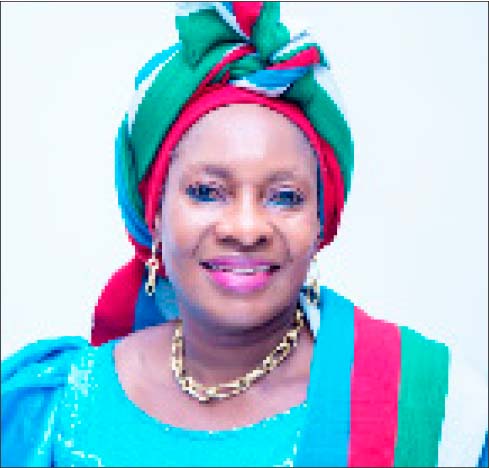
By Justina AutaThe Minister of Women Affairs, Mrs Pauline Tallen, on Tuesday, attributed the increasing cases of Violence Against Women and Girls (VAWG) in the country to inadequate and weak enforcement of law.
Tallen stated this during the presentation of report on the impact of the Violence Against Persons Prohibition (VAPP) Act and related laws in Nigeria presented by an international organisation, Westminster Foundation for Democracy (WFD) in Abuja.
According to her, incidences of Gender Based Violence (GBV) in Nigeria, particularly in rural areas has become a developmental concern because of its grave consequences on the health and security of rural women and girls.
She said GBV had contributed to minimal participation of rural and urban women in all spheres of life, increased poverty and other related diseases.
Tallen said incidences of GBV had been exacerbated amongst others by inadequate and weak enforcement mechanism of relevant laws; the lack of domestication of relevant laws at all levels, inefficient handling of GBV issues by security personnel and others.
The minister, while commending WFD and other stakeholders, called on states yet to domesticate and implement the VAPP Act to do so to eliminate GBV and achieve the Sustainable Development Goals (SDGs).
She added that we would continue to appeal to the remaining states to do same to give credence to our demands for gender justice in the country.
I wish to reiterate that the domestication of the VAPP Act will ensure the elimination of discriminatory practices in Nigeria as we together work toward the achievement of the SDGs.
Mr Adebowale Olorunmola, the Country Chief of WFM, said the VAPP Act would promote citizen participation in both formal and informal process, encourage women, youths, Persons with Disabilities (PWDs) to be part of decision-making that affects their everyday lives.
The result will promote effective implementation of the VAPP Act and other laws in Nigeria to make the country safe, including women and girls.
Olorunmola stressed the need for inclusive and violence-free politics to encourage women to participate in electoral process.
We need to work with stakeholders, political parties and their chieftains to ensure that electoral process is free of violence to enable citizens, including women, to participate as candidates to be elected and electorate to vote people of their choice, he said.
He stressed the need for stakeholders to collaborate in the fight against GBV and the inclusion of women in the political process possible.
The Director General, National Agency for the Prohibition of Trafficking in Persons (NAPTIP), Imaan Sulaiman-Ibrahim, said the agency had secured over 600 convictions since 2015 when the VAPP Act was signed.
Sulaiman-Ibrahim, who was represented by NAPTIPs Director of Legal and Prosecution, Mr Hassan Tahir, disclosed that the report of findings would serve as guide on best practices, successes and challenges that could be encountered in the implementation of the VAPP Act.
Presenting the report, the Lead Researcher, Mrs Bunmi Dipo-Salami, said the aim of the study was to assess the adoption, successes and challenges to the implementation of the VAPP Act since 2015, as well as other anti-violence laws against women.
Dipo-Salami said the research was undertaken in the FCT and selected states across the six geopolitical zones; Abia, Akwa Ibom, Anambra, Bauchi, Cross River, Edo, Enugu, Kaduna, Lagos, Osun, and Plateau.
The report provides evidence from quality data to understand the status of implementation, enabling factors and limitations of the VAPP Act in states where it has been adopted.
She explained that the findings revealed significant improvement in the implementation of the VAPP Act and related laws because of greater awareness due to enlightenment activities carried out by different stakeholders.
The lead researcher, therefore, called for collaboration among critical stakeholders and deliberate steps to ensure that prosecutors and counsel apply the VAPP law in charging cases of VAWG and not just the Penal Code.
There must be a multi-prong approach to alleviate womens poverty which was identified as one of the factors that heighten the vulnerability of women and girls to all forms of sexual and gender-based violence, she said.
The News Agency of Nigeria reports that other highlights of the day include the unveiling of the report on the Impact of the VAPP Act and related laws in Nigeria by the Minister of Women Affairs, Mrs Pauline Tallen. (NAN)
Source: NAN News
-
adminposted in News & Trends • read more
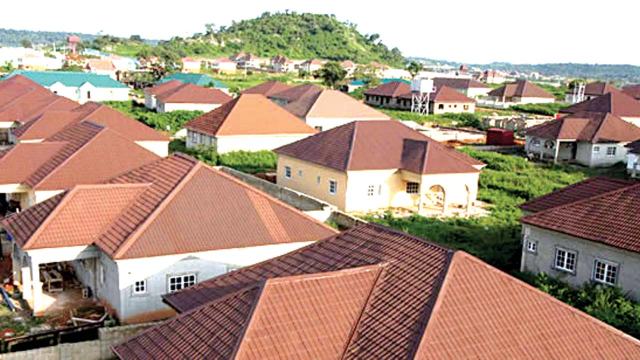
By Perpetua OnuegbuThe management of the Federal Housing Authority (FHA) has assured contractors handling its projects that they would all be paid latest by March 19.
Mr Kenneth Chigelu, of the Public Affairs Unit, FHA, made this known in a statement on Tuesday in Abuja.
Chigelu said this came about as a fall out of a meeting with the contractors on Tuesday.
The management of FHA just rose from a meeting with our contractors, with a resolution that all contractors who have completed their jobs will be receive their payments latest by Friday, March 19.
Management did not deliberately withhold the payment to our contractors with whom the authority have long standing good business relationship.
The little delay in payment is as a result of managements stance on due diligence before payments are made.
It is good to note that this issue have been amicably resolved, he said.
The News Agency of Nigeria (NAN) recalls that contractors numbering over 200, who handled the construction of Abuja Mass Housing Project for the authority, on Tuesday, staged a protest against the agency over non-payment of N1.5 billion debt owed them.
The contractors, operating under the aegis of Federal Housing Authority Contractors Association, protested the delay in payment of funds after the projects had been completed.
They pointed out that they had not been paid for the Abuja Mass Housing Project in Zuba, totaling N1.5 billion as well as the Apo housing project awarded in 2011 and completed since February, 2020.(NAN)
Source: NAN News
-
adminposted in News & Trends • read more
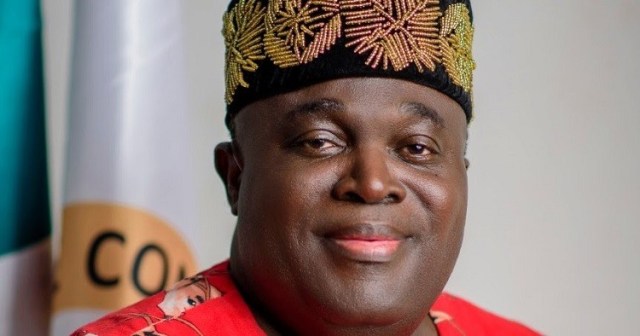
By Ismaila ChafePresident Muhammadu Buhari has offered sincere condolences to the family and friends of Chidi Izuwah as well the management and staff of Infrastructure Concession Regulatory Commission (ICRC) on the passing of their Director-General.
In a condolence message by his Senior Special Assistant on Media and Publicity, Malam Garba Shehu, in Abuja on Tuesday, the president paid tribute to the accomplished Engineer and Management executive.
He noted that the deceased held several positions in the oil and gas sector before joining the public service in 2009.
A very dedicated public servant who rose to the position of Director-General of ICRC in 2019, Izuwah was reform oriented and highly skilled, he said.
President Buhari acknowledged that the deceased played very important roles in advancing infrastructure financing in Nigeria with special emphasis on Public-Private Partnerships (PPP).
He will be missed, the president said.
According to the president, his thoughts and prayers are with the family, the Government and people of Abia as they mourn their illustrious son and a notable Nigerian. (NAN)
Source: NAN News
-
adminposted in News & Trends • read more
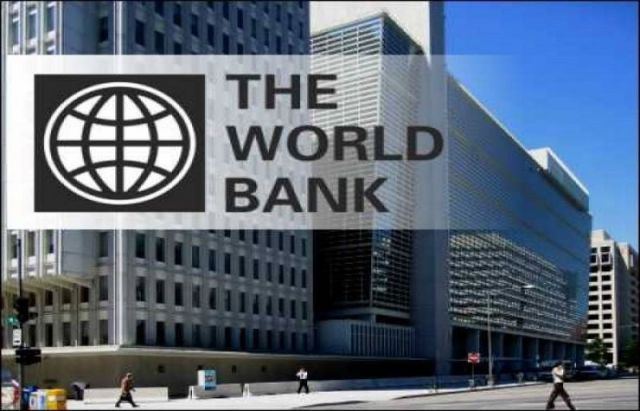
The World Bank (WB) Group has provided Tunisia with 300 million dollars to back its efforts in fighting poverty.The Banks vice governor for the Middle East and North Africa, Farid Belhaj, made the announcement at the end of talks with Tunisian President Kas Saied.
According to a communiqu issued by the Tunisian presidency, this aid will benefit about one million families under a social programme to be implemented under the supervision of the president of the Republic.
The talks focused on Tunisias financial and economic situation and the means to help the country overcome the difficulties it is going through.
President Saied said the Tunisian authorities were in a process to recover the funds stashed abroad by former president Zine El Abidine Ben Ali and his close associates but it faces several obstacles, essentially judicial.
Mr Belhaj expressed the readiness of the World Bank, through its expertise and experience, to help Tunisia regain the funds. (PANA/NAN)
Source: NAN News
-
adminposted in News & Trends • read more

Russia has donated 1,000 doses of the Sputnik V COVID-19 vaccine to Vietnam, marking the first time the vaccine was being delivered to the South-East Asian nation, state media said on Tuesday.Russian Security Council Secretary Nikolai Patrushev arrived in Hanoi on Tuesday for a two-day visit, bringing with him the donated Sputnik V COVID-19 jabs a gift proposed by Russian President Vladimir Putin.
On Feb. 26, Vietnams Ministry of Health approved Russias Sputnik V vaccine for emergency use amid a battle to contain a resurgence of the Coronavirus, a spread that has now been contained.
In August 2020, Vietnam registered to purchase between 50 and 150 million doses of the Russia-made vaccine, although it remains unclear exactly how many doses the country intended to buy.
The South-East Asian nation said it expected to receive at least 60 million vaccine doses in 2021, 30 million of which would be provided through the World Health Organisations COVAX equality mechanism.
Vietnam received its first COVID-19 vaccines in late February, when 117,600 doses of the AstraZeneca vaccine, approved for use in the country in early January, arrived at Ho Chi Minh Citys Tan Son Nhat Airport.
Vietnam began offering COVID-19 vaccinations in March, with front-line health workers and vulnerable citizens first on the list.
To date, Vietnam has officially recorded 2,557 Coronavirus cases and 35 deaths. (dpa/NAN)
Source: NAN News